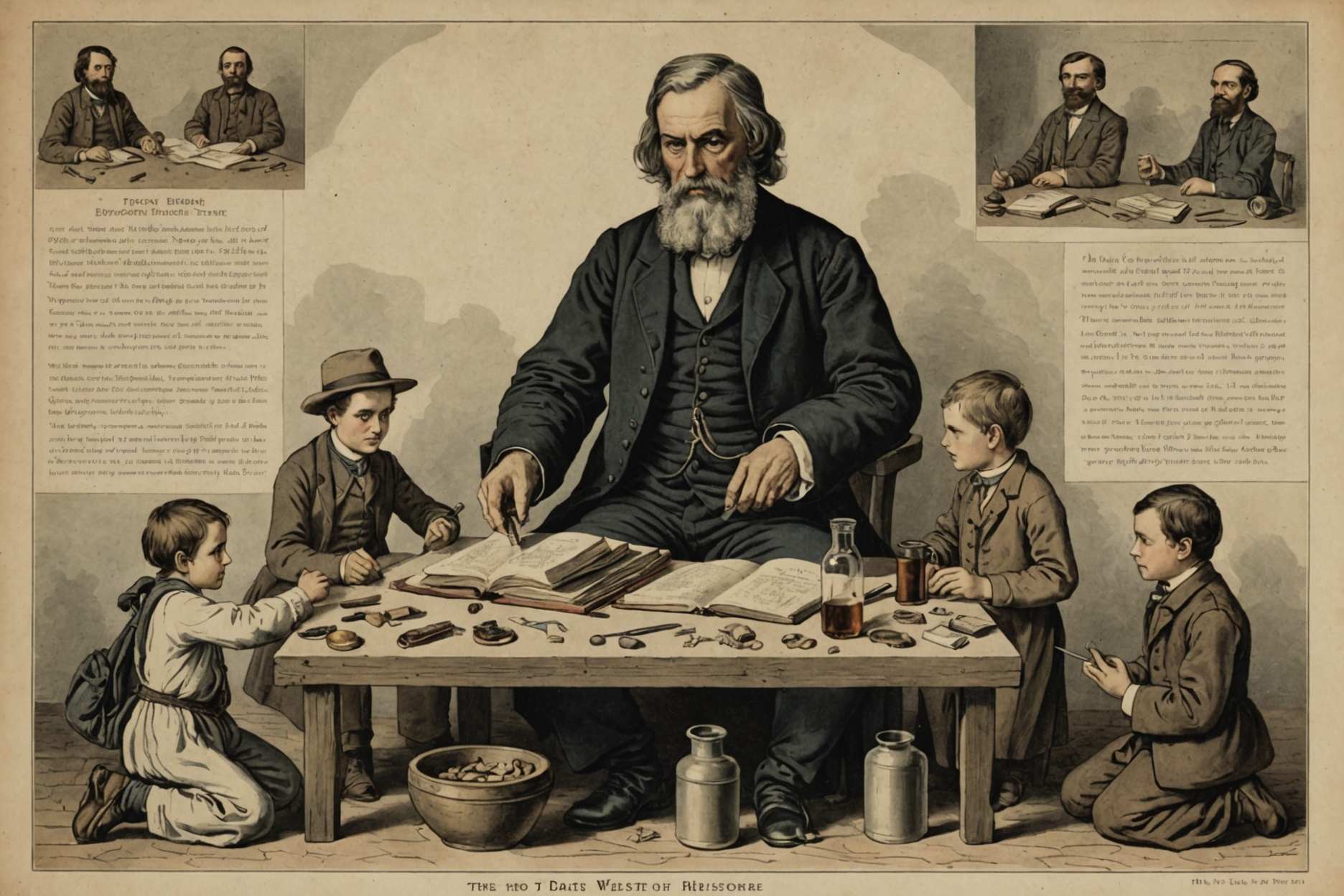Get To Be familiar with The Historical backdrop Of Western Medication

Western medication follows its beginnings to old Greece, where Hippocrates, perceived as the dad of Western medication, made critical commitments. Close by him, Roman doctor Galen likewise assumed an imperative part in forming wellbeing and medication in the Western world. After some time, the comprehension of medication advanced from crediting diseases to dark wizardry to embracing science-based information and present day clinical practices.
THE GREEKS AND ROMANS
During the Roman period, doctor Dioscorides distributed the historic clinical text, De Materia Medica, which stayed powerful among European specialists for quite a long time. Galen's hypotheses centered around body lopsided characteristics in regards to dark bile, yellow bile, mucus, and blood, which overwhelmed Western wellbeing ideas until the mid-nineteenth hundred years. The two Romans and Greeks presented the progressive idea that infections emerged from outside factors, testing the overarching conviction that ailments were ramifications of indecent activities or dark sorcery. Hippocrates upgraded this comprehension by itemizing home grown cures and arranging different diseases, while Galen made critical progressions in medical procedure and drugs.
Great Cleanliness, Wellbeing, AND THE FALL OF THE ROMAN Realm
The Romans recognized the basic job of cleanliness in wellbeing support, as proven by their improvement of plumbing frameworks and public bathhouses across their realm. They might have likewise settled early medical clinics in Europe. Be that as it may, with the downfall of the Roman Realm, clinical practices turned out to be vigorously impacted by the Catholic Church, which underlined confidence recuperating and supplication. During the Campaigns, Romanesque clinical hypotheses were once again introduced to Europe, prompting the foundation of pharmacists and clinical colleges in the thirteenth and fourteenth hundreds of years. The Renaissance denoted a recovery of the standards upheld by Hippocrates and Galen.
WORLD'S FIRST Immunization
In the late eighteenth hundred years, further advancement in Western medication was accomplished when Edward Jenner, an English doctor, fostered the primary immunization for smallpox, addressing a fantastic leap forward. In any case, a portion of Galen's techniques, like douches, phlebotomy, and the organization of prescription to prompt perspiring or retching, acquired prevalence regardless of their absence of viability and possible dangers to patients. The late nineteenth century saw a decrease in these practices as new, precise clinical ideas arose. Louis Pasteur's microbe hypothesis exhibited the association among microorganisms and sickness. Government sterilization drives and the boundless utilization of immunizations essentially upgraded individual cleanliness and wellbeing norms. Nursing perceived as a genuine clinical calling, and doctors progressively pushed for customary activity, a fair eating routine, and sufficient daylight.
THE Twentieth Hundred years
The twentieth century checked phenomenal progressions in Western medication. The improvement of protected and powerful pain killers, blood bonding strategies, penicillin, and high level clinical gear changed patient consideration. Immunizations for sicknesses, for example, tuberculosis and lockjaw were presented, and insulin became fundamental in diabetes therapy. Today, doctors benefit from a different exhibit of therapies, significant ventures, and state of the art clinical innovation, empowering an uncommon norm of clinical consideration.
THE GREEKS AND ROMANS
During the Roman period, doctor Dioscorides distributed the historic clinical text, De Materia Medica, which stayed powerful among European specialists for quite a long time. Galen's hypotheses centered around body lopsided characteristics in regards to dark bile, yellow bile, mucus, and blood, which overwhelmed Western wellbeing ideas until the mid-nineteenth hundred years. The two Romans and Greeks presented the progressive idea that infections emerged from outside factors, testing the overarching conviction that ailments were ramifications of indecent activities or dark sorcery. Hippocrates upgraded this comprehension by itemizing home grown cures and arranging different diseases, while Galen made critical progressions in medical procedure and drugs.
Great Cleanliness, Wellbeing, AND THE FALL OF THE ROMAN Realm
The Romans recognized the basic job of cleanliness in wellbeing support, as proven by their improvement of plumbing frameworks and public bathhouses across their realm. They might have likewise settled early medical clinics in Europe. Be that as it may, with the downfall of the Roman Realm, clinical practices turned out to be vigorously impacted by the Catholic Church, which underlined confidence recuperating and supplication. During the Campaigns, Romanesque clinical hypotheses were once again introduced to Europe, prompting the foundation of pharmacists and clinical colleges in the thirteenth and fourteenth hundreds of years. The Renaissance denoted a recovery of the standards upheld by Hippocrates and Galen.
WORLD'S FIRST Immunization
In the late eighteenth hundred years, further advancement in Western medication was accomplished when Edward Jenner, an English doctor, fostered the primary immunization for smallpox, addressing a fantastic leap forward. In any case, a portion of Galen's techniques, like douches, phlebotomy, and the organization of prescription to prompt perspiring or retching, acquired prevalence regardless of their absence of viability and possible dangers to patients. The late nineteenth century saw a decrease in these practices as new, precise clinical ideas arose. Louis Pasteur's microbe hypothesis exhibited the association among microorganisms and sickness. Government sterilization drives and the boundless utilization of immunizations essentially upgraded individual cleanliness and wellbeing norms. Nursing perceived as a genuine clinical calling, and doctors progressively pushed for customary activity, a fair eating routine, and sufficient daylight.
THE Twentieth Hundred years
The twentieth century checked phenomenal progressions in Western medication. The improvement of protected and powerful pain killers, blood bonding strategies, penicillin, and high level clinical gear changed patient consideration. Immunizations for sicknesses, for example, tuberculosis and lockjaw were presented, and insulin became fundamental in diabetes therapy. Today, doctors benefit from a different exhibit of therapies, significant ventures, and state of the art clinical innovation, empowering an uncommon norm of clinical consideration.
LATEST POSTS
- 1
 Excursion to Different Universes: the Top Sci-fi Motion pictures Ever
Excursion to Different Universes: the Top Sci-fi Motion pictures Ever - 2
 Ocean side Locations for a Family Excursion
Ocean side Locations for a Family Excursion - 3
 Dependable Savvy Locks to Update Your Home Security
Dependable Savvy Locks to Update Your Home Security - 4
 Unwind: Four Extraordinary Spa Resorts On the planet
Unwind: Four Extraordinary Spa Resorts On the planet - 5
 Instructions to Choose the Best Material Organization for a Fruitful Rooftop Substitution
Instructions to Choose the Best Material Organization for a Fruitful Rooftop Substitution
Share this article
 イーロン・マスク氏への最大「1兆ドル」規模の報酬案を承認…テスラ株主総会、時価総額増など条件達成で(読売新聞オンライン)
イーロン・マスク氏への最大「1兆ドル」規模の報酬案を承認…テスラ株主総会、時価総額増など条件達成で(読売新聞オンライン) Real time features for Films and Programs
Real time features for Films and Programs Home Security Frameworks with Shrewd Elements
Home Security Frameworks with Shrewd Elements ホラン千秋が振り返る「24時間ずっと仕事のことを考えていた日々」 高市早苗首相の「ワーク・ライフ・バランス」発言に思うこと(AERA DIGITAL)
ホラン千秋が振り返る「24時間ずっと仕事のことを考えていた日々」 高市早苗首相の「ワーク・ライフ・バランス」発言に思うこと(AERA DIGITAL) 西武戦力外の渡部健人が特大弾 ハム・石川直也からいきなり…解説者驚愕「軽打して」(Full-Count)
西武戦力外の渡部健人が特大弾 ハム・石川直也からいきなり…解説者驚愕「軽打して」(Full-Count) Well known SUVs With Low Energy Utilization In 2024
Well known SUVs With Low Energy Utilization In 2024 What is Fusarium graminearum, the fungus a Chinese scientist pleaded guilty to smuggling into the US?
What is Fusarium graminearum, the fungus a Chinese scientist pleaded guilty to smuggling into the US? 2025年の「ハンバーガー店」倒産が年間最多を更新 2,000円超の高級品と手頃な大手チェーン店の二極化が進行(東京商工リサーチ)
2025年の「ハンバーガー店」倒産が年間最多を更新 2,000円超の高級品と手頃な大手チェーン店の二極化が進行(東京商工リサーチ) 元巨人マイコラス投手が日本球界復帰視野「今回がそのチャンスかもしれない」とニーロ代理人(スポーツ報知)
元巨人マイコラス投手が日本球界復帰視野「今回がそのチャンスかもしれない」とニーロ代理人(スポーツ報知)













